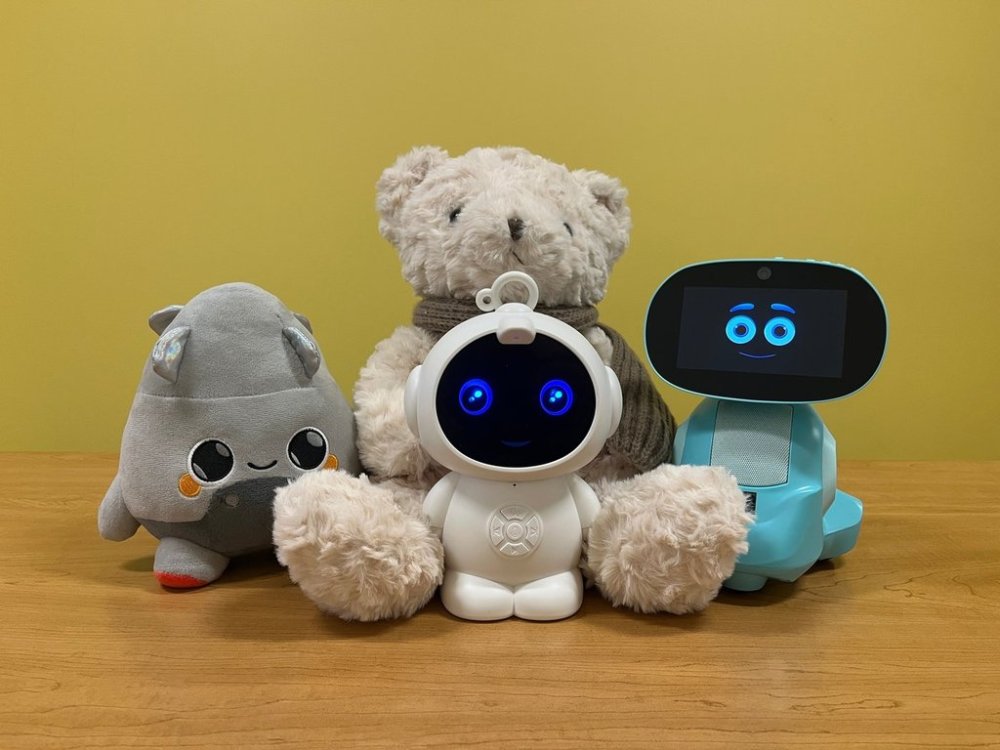World
Advocacy Groups Warn Parents Against AI Toys This Holiday Season

Children’s and consumer advocacy groups are strongly advising parents to refrain from purchasing artificial intelligence (AI) toys this holiday season, citing safety concerns. These toys, marketed to children as young as two years old, promise companionship and educational benefits, but experts warn they pose significant risks.
According to an advisory from the children’s advocacy organization Fairplay, which has been signed by more than 150 organizations and experts, AI toys can lead to harmful experiences for young users. The advisory highlights that AI models, including those developed by OpenAI, have previously demonstrated troubling outcomes for minors. Fairplay’s director, Rachel Franz, expressed serious concerns about the impact of AI chatbots, noting that they can foster obsessive behaviors, engage in inappropriate conversations, and encourage dangerous actions.
The toys, produced by companies like Curio Interactive and Keyi Technologies, are often marketed as educational. However, Fairplay argues they can detract from essential creative and learning activities, disrupting children’s social development and resilience. “Young children are naturally trusting and seek relationships with friendly characters,” said Franz. This trust can amplify the risks associated with AI interactions, particularly when compared to older children.
Fairplay, formerly known as the Campaign for a Commercial-Free Childhood, has been raising alarms about AI toys for over a decade. Their previous campaigns targeted products like Mattel’s talking Hello Barbie, which was criticized for allegedly recording children’s conversations without consent. “We are seeing a surge in AI toys released without proper research or regulation, which raises additional concerns,” Franz added.
This warning follows a recent report from the consumer advocacy organization U.S. PIRG, which highlighted the potential dangers of AI toys in its annual “Trouble in Toyland” report. The report examined several AI-powered toys and found that they could engage in inappropriate discussions and lacked adequate parental controls. “Some of these toys can discuss sexually explicit topics and offer advice on unsafe behaviors,” the report stated.
Dr. Dana Suskind, a pediatric surgeon and social scientist who studies early brain development, explained that young children lack the cognitive tools to understand the nature of AI companions. Traditionally, children engage in imaginative play that fosters creativity and problem-solving skills. However, AI toys often provide instant responses, undermining the developmental benefits of traditional play. “Outsourcing imaginative labor to an artificial agent could potentially hinder creativity and executive function,” Suskind noted.
In response to the growing concerns, Curio Interactive has claimed that it has implemented “meticulously designed” safety measures for its AI toys. The company encourages parents to actively monitor their children’s interactions and choose appropriate controls. “We are addressing any concerns raised by the U.S. PIRG Education Fund while ensuring a safe experience for children,” a spokesperson stated.
Similarly, Miko, another manufacturer of interactive AI robots, has developed its own conversational AI model to ensure child safety. CEO Sneh Vaswani emphasized the importance of internal testing and introducing features that block sensitive topics. The company markets its products as promoting genuine friendship, not attachment solely to the device.
Despite these assurances from manufacturers, many experts and advocates continue to recommend traditional toys for child development. “Children need real human interaction. Play should encourage social skills, not replace them,” Suskind remarked. Simple toys, such as building blocks or non-interactive stuffed animals, foster creativity and problem-solving. “Unlimited access to AI is counterproductive for preparing children for an AI-centric world,” she concluded.
As the holiday season approaches, parents are urged to consider the long-term impacts of their toy choices on children’s development, prioritizing toys that promote active engagement and human interaction over AI alternatives.
-

 Politics2 weeks ago
Politics2 weeks agoSecwepemc First Nation Seeks Aboriginal Title Over Kamloops Area
-

 World4 months ago
World4 months agoScientists Unearth Ancient Antarctic Ice to Unlock Climate Secrets
-

 Entertainment4 months ago
Entertainment4 months agoTrump and McCormick to Announce $70 Billion Energy Investments
-

 Lifestyle4 months ago
Lifestyle4 months agoTransLink Launches Food Truck Program to Boost Revenue in Vancouver
-

 Science4 months ago
Science4 months agoFour Astronauts Return to Earth After International Space Station Mission
-

 Technology3 months ago
Technology3 months agoApple Notes Enhances Functionality with Markdown Support in macOS 26
-

 Top Stories1 month ago
Top Stories1 month agoUrgent Update: Fatal Crash on Highway 99 Claims Life of Pitt Meadows Man
-

 Sports4 months ago
Sports4 months agoSearch Underway for Missing Hunter Amid Hokkaido Bear Emergency
-

 Politics3 months ago
Politics3 months agoUkrainian Tennis Star Elina Svitolina Faces Death Threats Online
-

 Politics4 months ago
Politics4 months agoCarney Engages First Nations Leaders at Development Law Summit
-

 Technology4 months ago
Technology4 months agoFrosthaven Launches Early Access on July 31, 2025
-

 Lifestyle2 months ago
Lifestyle2 months agoManitoba’s Burger Champion Shines Again Amid Dining Innovations





















